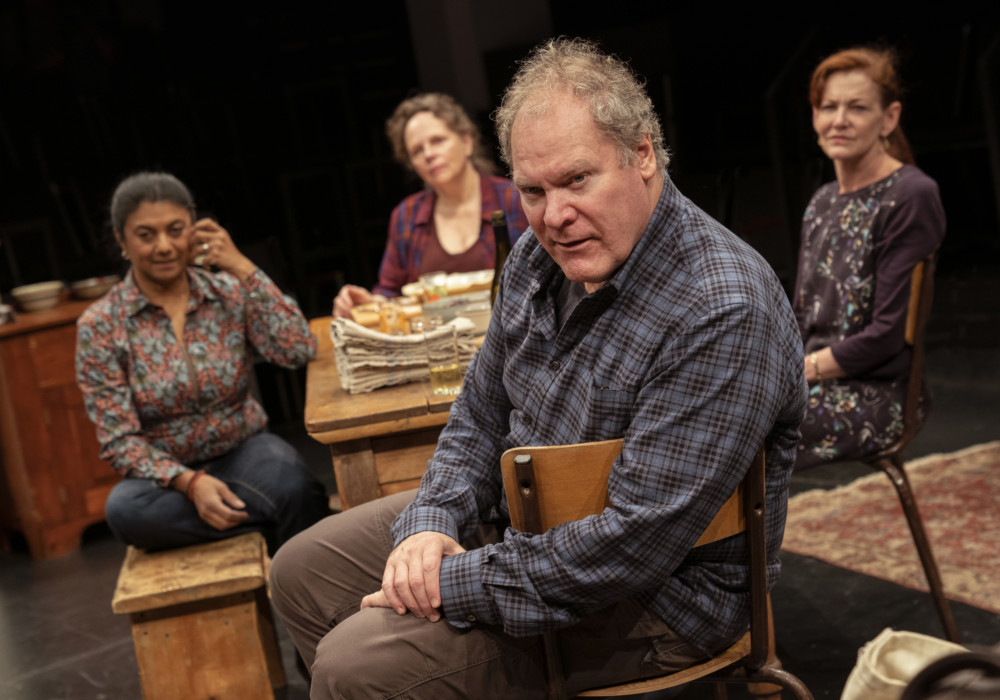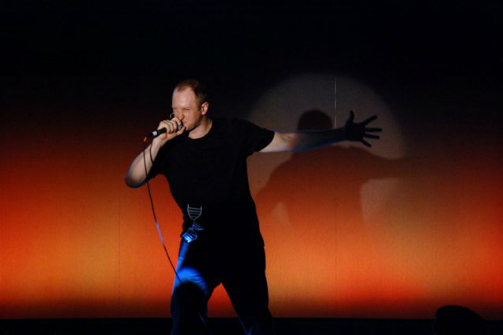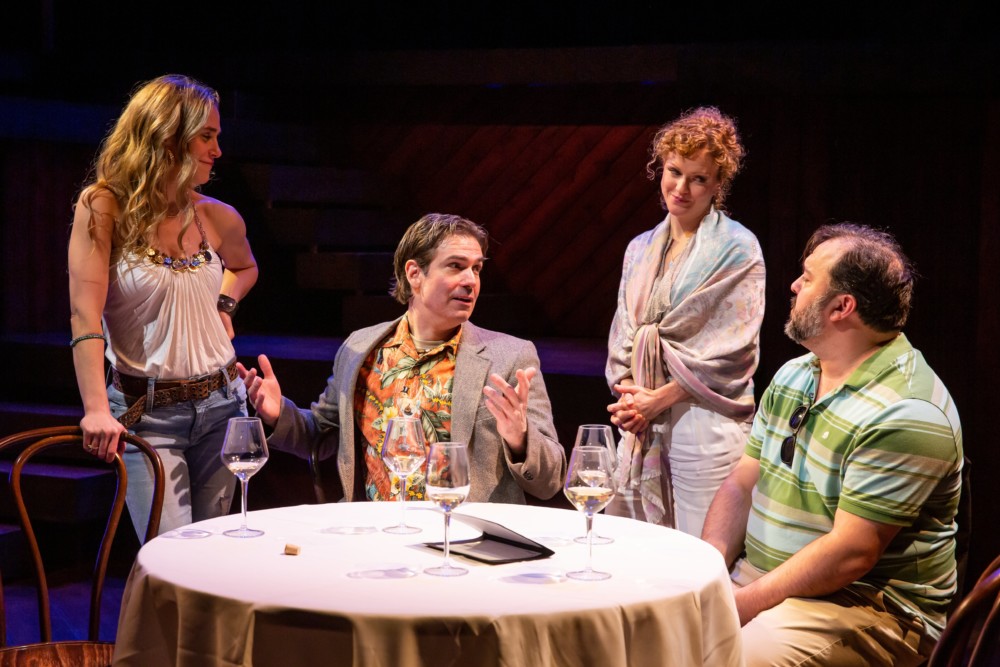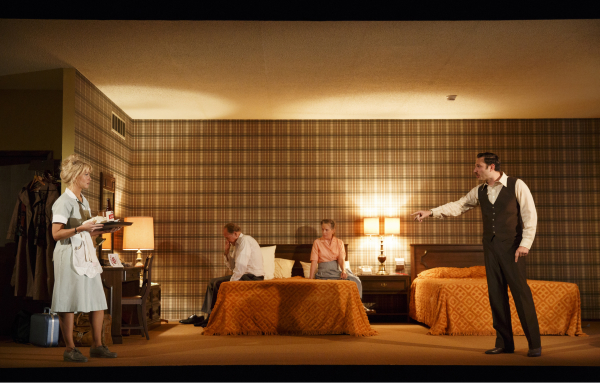by Carol Rocamora
You slide so gently and easily into this family scene. Though you may be in the audience, you feel as if you’re sitting with them around their kitchen table, a longtime friend, a welcome guest. The lights are warm, the atmosphere is cozy, the dress is casual, and you’re right at home – a member of the family.
So it goes in a Richard Nelson play. This is the third family into whose homes we’ve been welcomed over the past decade in his works (all taking place in Rhinebeck, New York). Previously, we’ve visited with the Apple family in four plays set over a three year period from 2010 – 2013, as they live their quotidian lives against the backdrop of historical events (elections, anniversary of JFK’s assassination, etc.) Next we were invited into the Gabriel family’s home in a trilogy subtitled “Election Year in the Life of One Family”), spanning from February to election night, 2016. All these productions were performed at the Public Theater, and the casts of each family cycle were uniform with only a few exceptions.
And now, in The Michaels: Conversations During Difficult Times, we’re folded into the warm, welcoming bosom of the Michaels family. It’s an artistic clan – Rose (Brenda Wehle), in whose kitchen the play takes place, is an eminent modern dance choreographer, and she and her companion Kate, a retired schoolteacher (Maryann Plunkett) are hosting a Sunday supper for their extended family. Present are David, Rose’s ex-husband and arts producer (Jay O. Sanders), and two former dance company members – David’s second wife Sally (Rita Wolf) and Irenie (Haviland Morris). Representing the younger generation are Lucy (Charlotte Bydwell), David and Rose’s daughter, and May (Matilda Sakamoto), Rose’s niece. These young dancers are preparing for an upcoming event celebrating Rose’s career, at which they will perform some of her compositions.
We spend two uninterrupted hours with the Michaels, watching Kate prepare a dinner in a fully functional on-stage kitchen, baking bread, assembling a quiche – while the other guests help with related tasks, moving furniture, setting the table, making a salad, and so on. As the delectable fragrance of cooking fills the air, they talk of their shared artistic experiences and the upcoming testimonial. They admire old photos. They speak in relaxed, conversational tones – so naturally that you can’t believe their dialogue is scripted. It’s “life as it is,” as Chekhov described his own plays about country life – masterpieces that Nelson acknowledges as his inspiration.
But over the course of two uninterrupted hours, that sense of comfort and security is subtly eroded. The hidden agenda is not the traumatic political backdrop, as it has been in past Nelson family cycles. Here, it’s a profound, existential one. The “difficult times” mentioned in the play’s subtitle refer to Rose, the family matriarch, who is dying of ovarian cancer. As that crisis is revealed, the characters – including Rose herself – deal with it individually and collectively.
The unexpected “dramatic event” of this play is the impromptu performance of Rose’s compositions by her daughter and niece – right there around the kitchen table. “Certain parts of life have never been danced,” explains Rose about her choreography of “My Brokenhearted Rag,” one of the pieces. “The best dance helps us to look inward.” This remarkable artistic interlude (performed beautifully by Bydwell and Sakamoto) is an affirmation of life and the power of art to transcend death itself.
Staged in the round by the playwright, the ensemble work is flawless. The sense of intimacy, ease, and authenticity gives this production a unique life force all its own. Special mention goes to artistry and humanity of Jay O. Saunders and Maryann Plunkett (married in real life), who have performed in all the Nelson family cycles.
“It is what it is,” says David with clarity and simplicity as others struggle with the finality of Rose’s condition. In a remarkable directorial touch, Nelson has included short, sharp blackouts between scenes, during which the sound of breathing is heard. As in Chekhov, life goes on. This is a play about acceptance – and the immortality of art.
Photos: Joan Marcus
The Michaels: Conversations During Difficult Times, written and directed by Richard Nelson, at the Public Theater through December 1
























